試す 金 - 無料
THE HARDEST NIGHT
Australian Geographic Magazine
|September-October 2024
The first Australian ascent of Mt Everest in 1984 is one of the great feats of mountaineering. Climbed by a small team semi-alpine style, with no bottled oxygen, via the Great (Norton) Couloir, it remains unrepeated 40 years later.

FORTY YEARS AGO at 8pm on 3 October 1984, Tim Macartney-Snape breathlessly picked his way onto the summit of Mt Everest. Below him was an ocean of cloud broken by darkened peaks – only his peak, the highest of them all, was still catching the last light of the setting sun.
As he waited for Greg Mortimer, so the pair would become the first Australians to climb Everest, he recorded his thoughts between ragged breaths on a tape recorder: “This is the summit of Mt Everest, Qomolangma, Mother Goddess of the Earth, the world is staggeringly beautiful from up here. In fact, it’s beyond superlatives.” Greg soon arrived in a state of total exhaustion. In the photos Tim took, Greg, clad in his red down suit, is unfurling a Buddhist prayer flag, his face a black blur in the poor light. The mountaineering cliche that “reaching the summit is only halfway” looms menacingly over the tableau like the imminent darkness.
Fifty metres below, fellow climber Andi Henderson, his frostbitten hands turning to claws, had turned around and was slowly retreating. Unable to swap his glacier glasses for prescription glasses, he was increasingly blind in the gloaming.
The hardest night of their lives was ahead of them.
IN HIS BOOK, Everest: the Ultimate Book of the Ultimate Mountain, British climber and acclaimed outdoor writer Walt Unsworth later wrote in awe about the Aussie ascent, which was achieved without bottled oxygen and in semi-alpine style. “Australia is not a nation with any great tradition of mountaineering and yet the Everest Expedition of 1984 was a model of what an expedition should be,” he observed. “Not only that, their actual achievement was astonishing; one of the greatest climbs ever done on the mountain.”
このストーリーは、Australian Geographic Magazine の September-October 2024 版からのものです。
Magzter GOLD を購読すると、厳選された何千ものプレミアム記事や、10,000 以上の雑誌や新聞にアクセスできます。
すでに購読者ですか? サインイン
Australian Geographic Magazine からのその他のストーリー
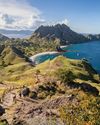
Australian Geographic Magazine
SULAWESI SENSATIONS
There are worlds within worlds and marvels untold waiting to be experienced on Indonesia's remote islands.
9 mins
September-October 2024
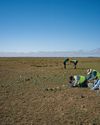
Australian Geographic Magazine
SEARCHING FOR AUSSIE DINOSAURS
Our understanding of where to find ancient life in Australia has been turned on its head by a new appreciation of the country's geology. Now the world is looking to our vast outback as the latest hotspot to locate fossils.
18 mins
September-October 2024
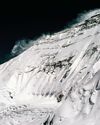
Australian Geographic Magazine
THE HARDEST NIGHT
The first Australian ascent of Mt Everest in 1984 is one of the great feats of mountaineering. Climbed by a small team semi-alpine style, with no bottled oxygen, via the Great (Norton) Couloir, it remains unrepeated 40 years later.
14 mins
September-October 2024
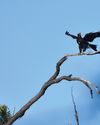
Australian Geographic Magazine
WEDGE-TAILED WONDER
The chance discovery of an eagle nest leads to an extended vigil observing normally hidden behaviours of one of nature's supreme winged marvels.
3 mins
September-October 2024
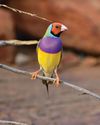
Australian Geographic Magazine
BURDENED BY BEAUTY
Northern Australia's Gouldian finch survives in huge numbers in cages around the world, but its wild population continues to struggle.
4 mins
September-October 2024
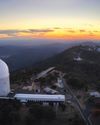
Australian Geographic Magazine
A TELESCOPE FOR A GOLDEN AGE
After a stellar 50 years as one of the country's major scientific assets, the AAT continues to play a major role in keeping Australian astronomy on the world stage.
7 mins
September-October 2024
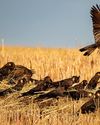
Australian Geographic Magazine
COCKY WHISPERING AT COOMALLO CREEK
This patch of remnant bush on the edge of the West Australian wheatbelt is a place loved by one of Australia's rarest bird species and the man who has studied the site for more than 50 years.
6 mins
September-October 2024

Australian Geographic Magazine
A PIONEERING PAIR
Louisa Atkinson and her mother, Charlotte, were among Australia's earliest authors, and pioneers in women's rights.
9 mins
September-October 2024
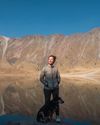
Australian Geographic Magazine
THE LONGEST WALK
Lucy Barnard is walking from Argentina to Alaska -the length of the Americas - on an extraordinary journey of endurance and adventure.
6 mins
September-October 2024
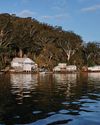
Australian Geographic Magazine
SECLUDED, BUT NOT ALONE
In an era of heightened social isolation, where many of us lead lonely lives, Dangar Island offers the chance to be part of a supportive, connected community.
7 mins
September-October 2024
Listen
Translate
Change font size
